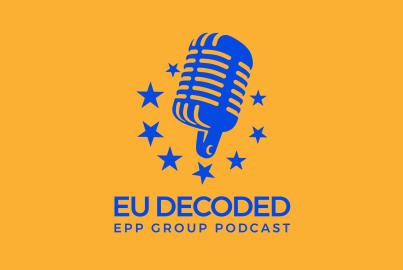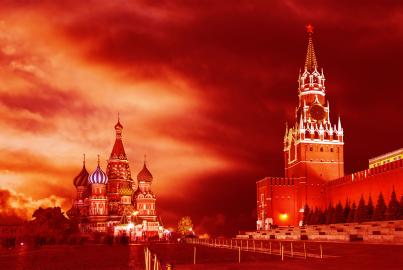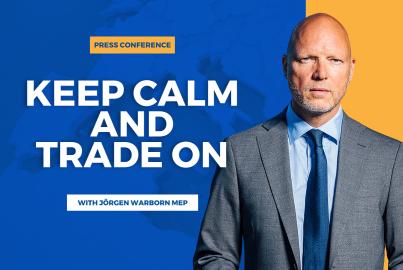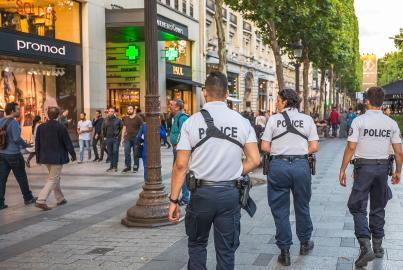Georgia’s Fight for Freedom is Part of Europe's Resistance Against Russian Imperialism
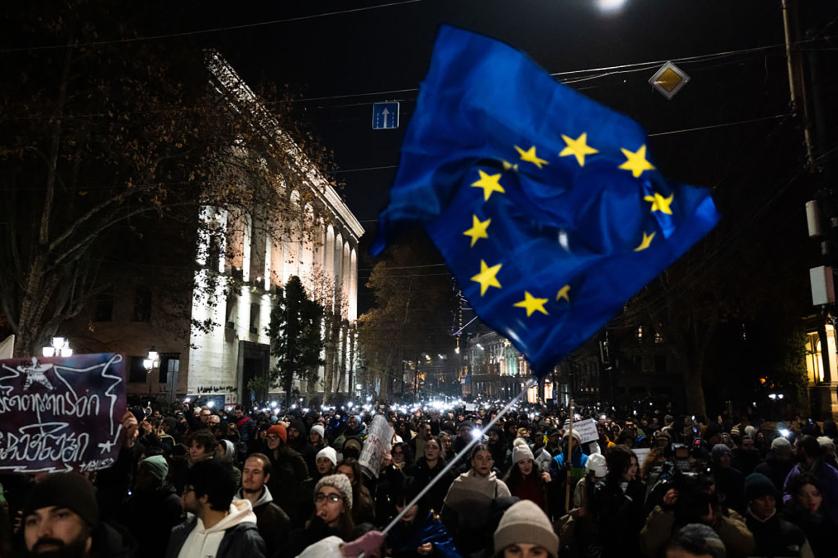
For more than 100 winter days and nights, Georgia’s most determined citizens have been resisting the pro-Russian regime of Bidzina Ivanishvili. Their peaceful struggle comes down to a simple but crucial choice: return to Russia or move forward toward the European Union. The only way to resolve this crisis is through new free and fair elections under proper international oversight—but Georgia needs firm EU support to achieve this.
From Tbilisi, the message to EU capitals and the European Commission is clear: Georgia’s fight for freedom is an integral part of Europe’s broader resistance to Russian imperialism.
By supporting the Georgians, we are not only helping Ukraine, Moldova, and Armenia—we are also strengthening the European Union and, in turn, defending ourselves.
The recent historic shift in Washington does nothing to weaken the determination of freedom-loving Georgians from defending their country from attempts to bring Georgia back under Kremlin influence and stop its European path.
The recent historic shift in Washington does nothing to weaken the determination of freedom-loving Georgians from defending their country from attempts to bring Georgia back under Kremlin influence and stop its European path.
The people remain resolute. However, the situation in Georgia is grim. Bidzina’s regime and the citizens protesting against it exist worlds away from each other. Bidzina has no interest in Europe. EU rules and values conflict with his goal of holding onto power and protecting the billions he has earned in Russia.
Bidzina’s interests align with those of the Kremlin, making it difficult to find effective leverage to force the regime into holding free parliamentary elections—so that the true will of the Georgian people regarding their future can be seen. Unfortunately, EU member states are not united on Georgia.
The Bad News
Viktor Orbán’s Hungary stands as the Georgian regime’s strongest ally within the EU, actively undermining collective efforts. A notorious saboteur, Hungary is blocking joint sanctions against Bidzina and other figures responsible for repression, arrests, and political imprisonment.
Beyond that, another group of countries chooses to ignore the regime’s authoritarian drift, prioritizing short-term stability over democratic values—much like they once did with Putin before 2022. Their attitudes stem from business interests and fatigue with EU expansion. Unfortunately, for some Western politicians, the South Caucasus, including Georgia, remains an afterthought, still viewed as outside the EU’s orbit.
As always, the Baltic States, Northern European countries, and the Netherlands understand the situation best, and high hopes are being placed on Germany’s new government.
France, too, has deep ties to the South Caucasus—due to both President Salome Zourabishvili’s efforts and the historical connections of the Armenian diaspora.
The situation has become even more fragile after the recent mixed signals from Washington D.C. A strong advocate for Georgia’s pro-European future, the U.S. today is on the brink. Cooperation between the EU and the U.S. is crucial for the stability of the entire region that is being threatened by Russia’s imperial expansion. Georgia is no exception.
Until recently, the U.S. played a crucial role in supporting independent media and strengthening civil society through NGOs. Now, with the suspension of USAID activities, that support has vanished entirely. In attempting to fix a minor issue, the U.S. has instead severed a vital lifeline—crippling Georgia’s pro-democracy movement when it needs help the most. It is my sincere hope that the suspension is temporary and that the U.S. will resume its role as the key supporter of democracies and civil societies that resist authoritarianism.
Latest Blow to Democracy
Like all autocrats, Bidzina seized control of major state media outlets long ago. One of the most painful recent attacks on democracy was the takeover of Georgia’s main opposition TV channel, Mtavari, by business interests loyal to Bidzina. The channel has now stopped broadcasting entirely. Other independent media outlets are being slowly suffocated, threatened, and repressed. Dozens of journalists have been attacked and arbitrarily detained; some remain behind bars in precarious conditions, like Mzia Amaglobeli, who has become the symbol of Georgia’s resistance.
A symbolic but deeply troubling sign of the changing situation: During Georgia's commemorations of the anniversary of the Soviet invasion, when the Bolsheviks crushed the country’s early 20th-century independence movement. Traditionally, this day was marked at a monument dedicated to the event, with foreign ambassadors present.
This time, not only was the U.S. embassy absent, but so were U.S. military personnel, who had previously always attended to show their respect.
These are deeply concerning changes that could have serious consequences not just for the region but also for all of Europe.
Donald Trump is Bidzina’s greatest hope, and they do not hide it. Let us hope Washington will disappoint them.
The regime is following the path of Lukashenko—changing laws daily to suppress protesters. People returning from demonstrations are individually attacked. The defence and foreign ministries are being purged of pro-Western officials—prime targets of Bidzina’s regime.
Fear, aggression, and lies—the same well-known playbook used by Kremlin-aligned regimes.
Is There Still Hope?
People often ask this.
For now, the answer is yes.
President Salome Zourabichvili has become the unquestionable leader of the resistance. Opposition party leaders and civil society figures also fully grasp the severity of the situation. Their role is crucial; they are not backing down, and they are adamant: "This is our country, and we must defend it."
Spring is Coming
Georgians are adamant that they have “endured the cold winter days and nights on the streets—we will endure the spring even more,"
They understand that Ukraine’s fate is now more crucial than ever for their own future.
The coming days could determine everything.
In addition, our message ultimately remains the same as the British Government’s in 1939, we urge the Georgian people to "Keep calm, carry on!"
President Salome Zourabichvili has become the unquestionable leader of the resistance. Opposition party leaders and civil society figures also fully grasp the severity of the situation. Their role is crucial; they are not backing down, and they are adamant: "This is our country, and we must defend it."
Note to editors
The EPP Group is the largest political group in the European Parliament with 188 Members from all EU Member States
MEP Contacts
Press contacts

Press officer for Foreign Affairs, Development and for Poland
Other related content

6 / 54

